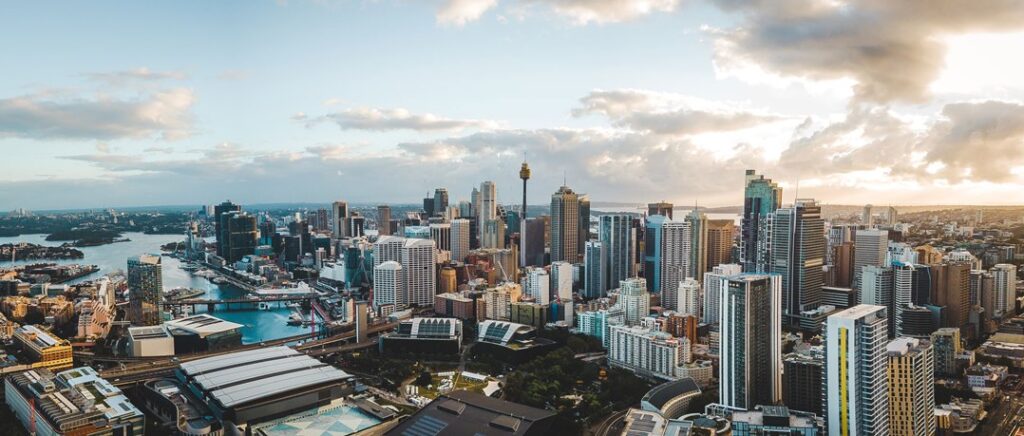When the world continues to urbanize new issues related to urbanization include traffic congestion, air pollution, energy consumption, and public safety. Therefore people are adapting to new technology to make the cities more innovative and more sustainable. One such technology that is rapidly being employed in smart cities and urban planning is artificial intelligence (AI).
If you are wondering what smart cities are, Smart cities are urban communities that employ technology to improve the quality of life for the citizens while minimizing environmental impact. They use data and communication technologies to optimize municipal operations and services, increase urban mobility, and improve public service delivery. The purpose of a smart city is to provide its citizens with a sustainable, efficient, and comfortable environment.

How Artificial Intelligence Implemented
AI and Machine Learning (ML) technologies and techniques are already being used in smart city and neighborhood initiatives throughout the world. Particular application areas are mainly limited by the public’s and city planners’ imaginations, such as Traffic Management, Public Safety, Waste Management, and Urban Planning.
Traffic Management
Artificial Intelligence is applied in road traffic management to assist in the analysis of real-time data from various modes of transportation, such as vehicles, buses, and trains. AI analyzes this information to detect patterns that might suggest a safety risk. This data is then used to develop suggestions on how to manage these risks and reduce the frequency of accidents that occur. AI can be implemented to enhance traffic signals, automatic distance recognition, smart parking, enforce laws in traffic, and control congestion by analyzing data from sensors and cameras. It will also reduce emissions from idling cars, can minimize travel times and improve air quality.
Public Safety
Intelligent video analytics that can learn to distinguish normal and abnormal activities can highlight relevant footage for evaluation by law enforcement personnel through AI. This lowers hours of effort to minutes and converts standard video recording (CCTV) into a productive output mechanism. The theory behind these systems is that if workers are alerted to critical moments sooner, they will be able to act more quickly. Video analytics direct human attention to what is most essential, bringing significant events and insights to an officer’s notice fast, saving time in high-risk circumstances when every second counts.
Waste Management
AI can be used to understand waste production patterns by analyzing data on when and where people are throwing away the trash. They can then optimize waste management truck pick-up schedules, ensuring that garbage is picked up at the times and places where it is most likely to be created. This information can additionally be utilized to identify areas where we can reduce trash and improve our disposal methods.
Similarly, AI can be assisted in developing more effective and efficient disposal methods of waste, by evaluating data on what sorts of waste are created and where they are disposed of. AI systems can use machine learning algorithms to determine the weight and kind of food wasted. This data is then utilized to produce a more precise inventory of the food kitchen, assisting in the reduction of food waste each day.
Urban Planning
AI can be applied to assess data on population density, land use, and transportation patterns to enable city planners in making better urban development decisions. It can assist in identifying places that are underutilized by public transportation or do not have access to green spaces, as well as informing choices regarding future infrastructure projects.

Benefits of AI in Smart Cities
- Increased Efficiency: Artificial intelligence can help cities run more effectively by optimizing resource usage and minimizing waste. This can help both the city and its citizens save money.
- Improved Service Delivery: AI can assist improve public service delivery by giving real-time data on usage patterns and service demands. This can help cities modify their services to better match the requirements of their citizens.
- Improve public safety: Recognizing possible threats and abnormalities in real-time. This can contribute to crime prevention and emergency response times.
- Enhanced Sustainability: Artificial intelligence can assist cities in becoming more sustainable by optimizing energy use and reducing pollution from transport and buildings.
- Improved Urban Planning: By providing real-time data on population density, land use, and transit patterns, AI can assist city planners in making better-informed decisions regarding urban growth.
Artificial intelligence has the ability to revolutionize how cities operate and provide services to their citizens. AI can help cities become more sustainable, efficient, and comfortable by optimizing resource consumption, improving service delivery, and strengthening public safety. Yet, the application of AI in smart cities poses significant concerns about privacy, cost, accessibility, reliance on technology, and bias. Cities must address these issues and guarantee that the use of AI is governed by values of justice, transparency, and accountability. As cities continue to develop and encounter new challenges, AI is expected to play a greater part in supporting them in becoming smarter and more sustainable.






Someone necessarily assist to make seriously articles I would state.
This is the very first time I frequented your website page
and up to now? I surprised with the research you made to make this actual
publish extraordinary. Magnificent process!